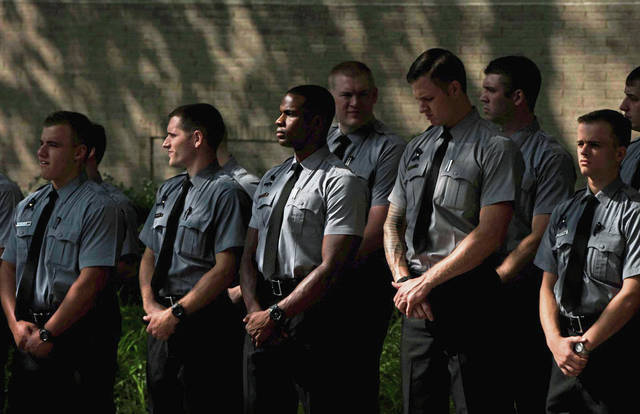“Black arrests up, police recruits down” (July 20, TribLIVE) was one of the most positive editorials I have seen to address crime in black communities, if understood and taken in the right light.
For the past 30 years I have been working with local police departments and local officials conducting police testing for local governments, first with the State Department of Community Affairs and the last 14 years as an independent consultant. Municipal officials and police chiefs, especially those in black communities, have tried desperately to get minority police officers in their communities to sit for tests, but without much success.
One of those reasons is that, for the most part, these communities include in their rules of hiring, Civil Service or otherwise, that to be a police officer in Pennsylvania, a person must have successfully completed the Act 120 certification training.
From my experience and others’, there appear to be two major reasons why we don’t see more black candidates attending classes to become Act 120-certified and ultimately become police officers.
First: Most recruits who complete the Act 120 training have to pay for it themselves; very few are hired by a municipality and provided funding for the training. Many young black men and women may not have the resources to pay for the training ($5,000, according to the Allegheny County Police Academy website. ) At one time, the state provided partial funding to municipalities to hire and then send prospective police officers to Act 120 certification training.
Second: Parents and leaders in black communities must accept that this is a problem that affects crime in their communities and must make it a priority to encourage young black men and women to become police officers. That could help eliminate a stigma that may be a reason for young people not pursuing a career as a police officer.
Initiatives such as a task force could be undertaken to address these issues. I wrote such an initiative for a local community that had the foresight to recognize this as a problem. Unfortunately, that needed initiative, including ideas on how to encourage young black men and women to be police officers, and possible funding sources for them to attend training, was not followed up and the concern apparently dissipated.
Bottom line: It is hoped that parents and leaders will recognize this as a concern for their communities, as it has been an ongoing concern for local officials and police chiefs for years.
If nothing else, Pittsburgh City Police Officer Calvin Hall’s unfortunate passing and the impact he had on the community will hopefully instill a greater understanding of the need and importance to address this concern.








